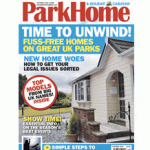Rawdon Crozier, a barrister and mediator practising from KBG Chambers, and Ibraheem Dulmeer, a legal adviser and solicitor-advocate (civil) with the Leasehold Advisory Service (LEASE), explain how the Consumer Rights Act 2015 and other legislation impacts on buying a new park home from a site owner
When buying a new park home directly from a site owner, the Consumer Rights Act 2015 (“CRA”) and the Mobile Homes Act 1983 or Mobile Homes (Wales) Act 2013 (“MHAs”), give purchasers a number of protections in addition to those that may exist under the contract of purchase or common law. This article gives an overview of those protections.
WHY ‘NEW’ PARK HOMES?
Amendments to the MHAs and regulations effectively removed site owners from the sale of pre-owned park homes, so, although some of what follows is of wider application, the focus of this article is on the sale of new park homes.
CONSUMER RIGHTS ACT
These consumer rights arise when a site owner sells a park home to someone other than a trader or a business. The CRA was introduced to consolidate most of the existing consumer protection legislation. For example, the sale of goods was covered by a separate Act of Parliament. It is therefore easier for both buyers of park homes and site owners to establish their respective rights and liabilities and at the same time it is important for both to be aware of what they are.
THE STATUTORY RIGHTS
The CRA provides for “statutory rights” which include that the park home sold should be:
● of satisfactory quality
● fit for purpose
● as described
● installed correctly
● delivered without undue delay or within 30 days of the contract being made unless agreed otherwise.
Before we deal with some of these bullet points in brief below, it is important to note that where the site owner is the seller, it is the site owner who is liable for any breach. A site owner cannot say “It’s nothing to do with me; you must take it up with the manufacturer”. That is not to say that, if there is a manufacturer’s warranty, a park home owner should ignore that. Being aware of the manufacturer’s aftersales care and/or warranty is sensible for both park home owners and site owners. The interplay between consumer rights and warranty claims is considered further below.
Satisfactory quality:
The park home should not be faulty or damaged when a park home owner purchases it. A park home owner should ask what a reasonable person would consider satisfactory for the park home in question. For example, a luxury park home advertised as having a high-end finish should not have a poor finish.
Fit for purpose:
The park home should be fit for the purpose it is supplied for. This includes any specific purpose the park home owner has made known to the site owner before purchase. An obvious example will be that the park home must be fit for occupation or habitation throughout the year, in both summer and winter and fit for the location in which it is intended to be sited.
INFO POINT
Rawdon Crozier is a barrister and mediator practising from KBG Chambers (www.kbgchambers.co.uk, telephone 0845 308 155, email clerks@kbgchambers.co.uk).
Ibraheem Dulmeer is a legal adviser and solicitor-advocate (civil) with the Leasehold Advisory Service (LEASE). LEASE provides free advice on fully residential park home matters. If you have any questions regarding the information in this article, contact LEASE on 020 7832 2525 or email info@lease-advice.org. The Park Homes LEASE website https://parkhomes.lease-advice.org/ also carries guidance and reports of Tribunal decisions, which you may find of use.
This article is not meant to describe or give a full interpretation of the law; only courts or tribunals can do that. If you are in any doubt about your rights and duties then seek specific advice.

Read the full story in the October 2018 issue of Park Home & Holiday Caravan



